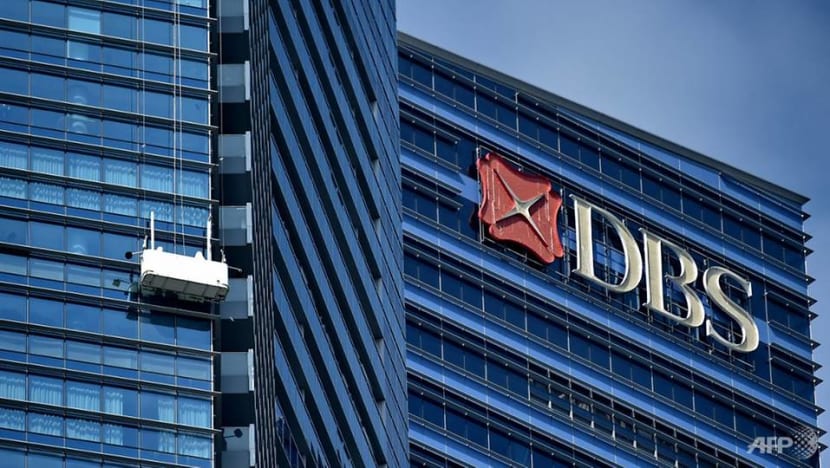DBS joins United Nations' Net-Zero Banking Alliance

File photo of the DBS building in Singapore on Aug 5, 2015. (File photo: AFP/Roslan Rahman)
SINGAPORE: Singapore’s DBS Bank has joined the United Nations’ Net-Zero Banking Alliance, as part of its ongoing efforts to tackle climate change, it said on Friday (Oct 29).
As a signatory of the alliance, DBS will commit to transitioning greenhouse gas emissions from its portfolios to align with the goals to net zero by 2050 or sooner.
It also commits to annually publishing absolute emissions and emissions intensity in line with best practice as well as within a year of setting targets.
DBS added that it will take a "robust approach" to the role of carbon credits in transition plans.
The banking alliance is part of the Glasgow Financial Alliance for Net Zero (GFANZ) and is hosted by the UN Environment Programme Finance Initiative.
Launched in April this year, the alliance currently includes 87 banks across 36 countries, representing more than 40 per cent of global banking assets amounting to around US$65 trillion.
“Fantastic that DBS will be the first Singaporean bank to join the Net-Zero Banking Alliance and GFANZ, the gold standard for net zero commitments and action,” said Mr Mark Carney, UN special envoy for climate action and finance.
“DBS’ commitment, expertise and leadership will make powerful contributions, particularly in the ASEAN region which is crucial for global decarbonisation, to driving the transition to a net zero economy,” he added.
Earlier in April, DBS committed to zero thermal coal exposure by 2039. To achieve this goal, the bank said that it will cease the onboarding of new customers who derive more than 25 per cent of their revenue from thermal coal.
It also issued a statement in 2018 to restrict financing to only coal-fired power projects that adopt more advanced technologies which emit lower carbon emissions, and to stop financing new thermal coal mining projects. This was followed by a blanket cease in financing any new coal power assets in April 2019.
DBS recently committed to ensuring net-zero operational carbon emissions across the bank by 2022. It has also committed to using 100 per cent renewable energy for its Singapore operations by 2030.
“Joining the GFANZ alliance and making a commitment to net-zero carbon emissions by 2050 is not something that we take lightly,” said Mr Piyush Gupta, chief executive officer of DBS.
“Determining suitable transition pathways for our customers in different industries, and creating realistic medium-term milestones in the journey is challenging, given the starting position in many countries in our part of the world.
“Nevertheless, we firmly believe that collective action is essential to achieving a net-zero future, and now have some line of sight towards a viable course of action that is constructive and impactful.”
This year, DBS raised its sustainable finance target to S$50 billion by 2024 to help customers incorporate sustainable business practices into their overall business strategy.
As of end of Oct 2021, DBS has concluded more than S$30 billion of sustainable financing, the bank said.
















